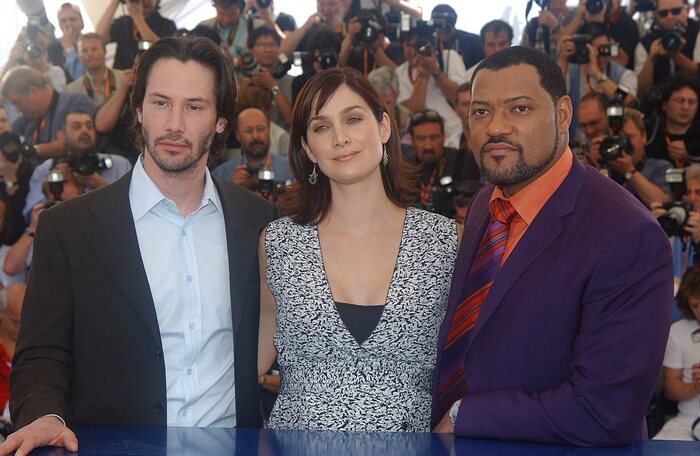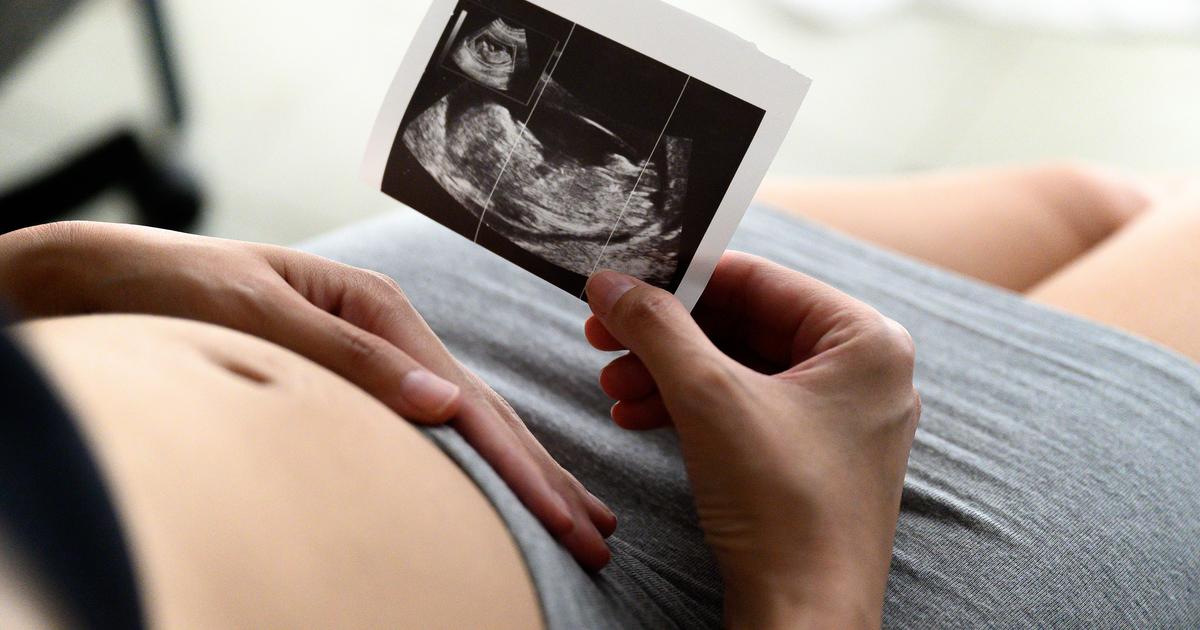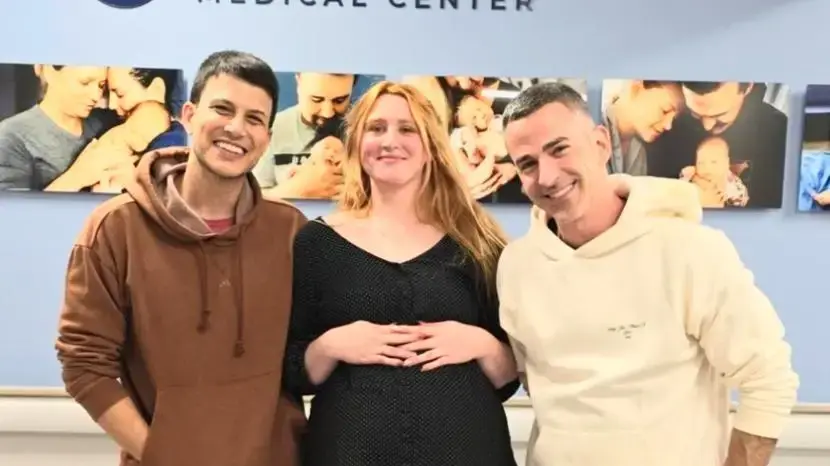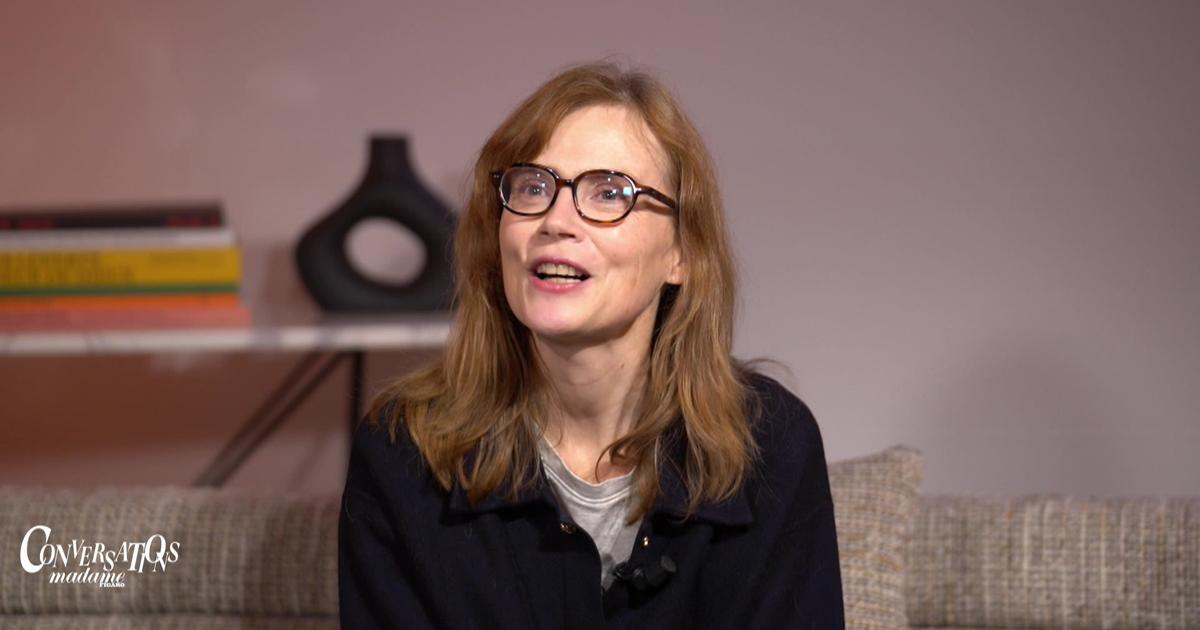In her latest film,
No Home Movie
, Chantal Akerman recalls that when her mother would pick her up from kindergarten, she would hold her hand tightly to reassure herself to the other children.
“This is my mother”, she proudly proclaimed about a “very pretty” woman that she “always laughed at nothing, but that nothing was everything”.
Natalia (Nelly) Akerman, a Polish Jew who survived Auschwitz, died at the age of 86, shortly after giving herself up to the last experiment that her daughter gave her from a screen.
More information
The best film in history is neither 'The Godfather' nor 'Vertigo': experts choose a film by Belgian Chantal Akerman
The absence of Nelly, a woman whose unfathomable trauma became a powerful mother-child bond, plunged Chantal Akerman into a deep personal fracture.
That smiling housewife contained the mystery of her identity and her cinema.
Tragically, she also made sense of it.
Ten days after being discharged for depression, the filmmaker was found dead in her Parisian apartment.
Born in Brussels on June 6, 1950, Akerman committed suicide in Paris on October 5, 2015, days before No Home Movie
premiered
in New York, the city that most helped her find herself.
The slab of fate closed the vital circle of a filmmaker whose influence reaches authors such as Gus Van Sant, Todd Haynes, Kelly Reichardt or Sofia Coppola, who escapes labels —"I am a woman, I am Jewish, I am a director and I am a writer, so you can't put me in a single box”— and that at only 25 years old he directed his most recognized work,
Jeanne Dielman, 23 quai du Commerce, 1080 Bruxelles
, the best film in history according to the latest results of the canonical survey carried out every decade by Sight & Sound magazine
.
It is re-released in theaters on March 8, but it can already be seen in Spain, along with a selection of almost fifty of her films, on Filmin.
Natalia Leibel, Chantal Akerman's mother, in the documentary 'No Home Movie' (2015), available on Filmin.
Presented at the Directors' Fortnight at the 1975 Cannes Film Festival,
Jeanne Dielman
from its first screening it became a strange event.
Shot with a team mostly of women, something very complicated not so long ago, it detailed the routine and domestic rituals during three days in the life of a housewife played by Delphine Seyrig.
More than three hours of footage that broke the schemes of the spectators who deserted the room in anger or of personalities like Marguerite Duras, who shouted: "This woman is crazy!", in the middle of the projection.
The day after Duras's anger, fifty festivals around the world showed her interest in a film whose icy and morose form hid a feminist bombshell and a turning point in the history of cinema.
Delphine Seyrig, in a still from 'Jeanne Dielman, 23, quai du Commerce, 1080 Bruxelles', by Chantal Akerman.
Jeanne Dielman
, like much of Akerman's work, drinks from her own familiar landscape and from that longing and melancholy that runs through her best filmography, a cinema dedicated to listening to silence and observing the void.
“I am interested in everything that others discard”, said this precocious creator who was fascinated by
Godard's
Pierrot le fou as a teenager and who was already studying cinema at the age of 18.
She didn't even last a year in school and, in 1968, she shot a short film starring herself with her own savings.
Saute ma ville
is premonitory: it takes place in a kitchen where domestic rituals end in a destructive and suicidal delirium.
Thanks to an award obtained with this short film, Akerman moved to New York between 1971 and 1972, the city where he found the answer to the cinema he was looking for thanks to Jonas Mekas' Anthology Film Archives and other experimental and avant-garde filmmakers such as Andy Warhol and especially Michael Snow.
Mekas showed him the path of cinema as a record of his own life and Snow's influence can be seen in his first feature film,
Hotel Monterey
(1972), a wordless film that stealthily covers the spaces of this New York hotel.
There he also began his long professional and personal relationship with cinematographer Babette Mangolte.
Chantal Akerman, in 2005 in Madrid, in her video installation 'Desde el otro lado'. LUIS MAGÁN
Akerman would return to New York after the premiere of
Jeanne Dielman
to shoot one of his most important films,
News from Home
(1976), with Mangolte in the streets and subways of Manhattan, a documentary that collects the sounds and life of the city while the filmmaker reads the letters that her mother sent her, reproaching her many times for the distance, during her first stay in the city.
Between her return to New York and
Jeanne Dielman
, Akerman filmed her second feature,
Yo, tú, él, ella
(1974), which offers quite a few clues about the profound feeling of loneliness that accompanied her.
Shot in black and white and starring the filmmaker herself,
Yo, tú, él, ella
closes with a lesbian sex sequence whose impetuosity refers to that same emptiness.
A still from 'Yo, tú, él, ella' (1974), by Chantal Akerman.
One of the most interesting stages of his filmography is dedicated to his travels, in which he explores his own uprooting.
In
Del Este
(1993), he tours Russia, the Ukraine and Poland after the fall of the Berlin Wall;
in
South
(1999), the racist South of the United States;
In
On the Other Side
(2002), the border with Mexico: and in
Allá
(2006), he travels to Israel to lock himself in an apartment in Tel Aviv.
The very long
traveling shots
of
Del Este
, through which we see landscapes and faces charged with terrible memories pass by, are repeated in
Sur
, in which Akerman achieves one of the most compelling moments in his cinema with the appalling account of the murder of a black man by three white supremacists who chained him to their truck and dragged him three miles down a back road until they dismembered him.
The end of the film is the real-time filming of that hair-raising journey.
Akerman places his camera in the back of a pickup truck and from there, as night falls, he travels the same road on which that man's body was destroyed.
Chantal Akerman was born injured.
Her parents and her grandparents had emigrated from Poland to Belgium in the 1930s.
While her father, Jacob Akerman, escaped Nazism by hiding for two years in a Brussels apartment, her mother had worse luck.
Deported to Auschwitz-Birkenau with her family in 1943, only she survived.
She was released at the age of 15 and the consequences will reach her daughter.
Nelly Leibel, her maiden name, was cultured and intelligent, but she was trapped for life in a deadly silence about her past that her daughter tried to break until her death.
Inquiring into that silence was the main engine of the work —also the literary one, with texts like
My mother laughs
or
A family in Brussels—
, From a filmmaker who sought her mother in herself and in all women.
The 10 Chantal Akerman films available on Filmin
No Home Movie
(2015)
La paresse
(1986, short film)
Hotel des Acacias
(1982)
Every Night
(1982)
News from Home
(1976)
Jeanne Dielman, 23 quai du Commerce, 1080 Bruxelles
(1975)
I You He She
(1974)
Le 15/8
(1973)
Hotel Monterey
(1972)
Saute ma ville
(1968, short film)
This cycle by Chantal Akerman is now available on Filmin and will run until January 2026 at least.
Subscribe to continue reading
Read without limits
Keep reading
I'm already a subscriber

/cloudfront-eu-central-1.images.arcpublishing.com/prisa/3IL2KRD7VJCKPM5UNHKN4LSC7U.jpg)













